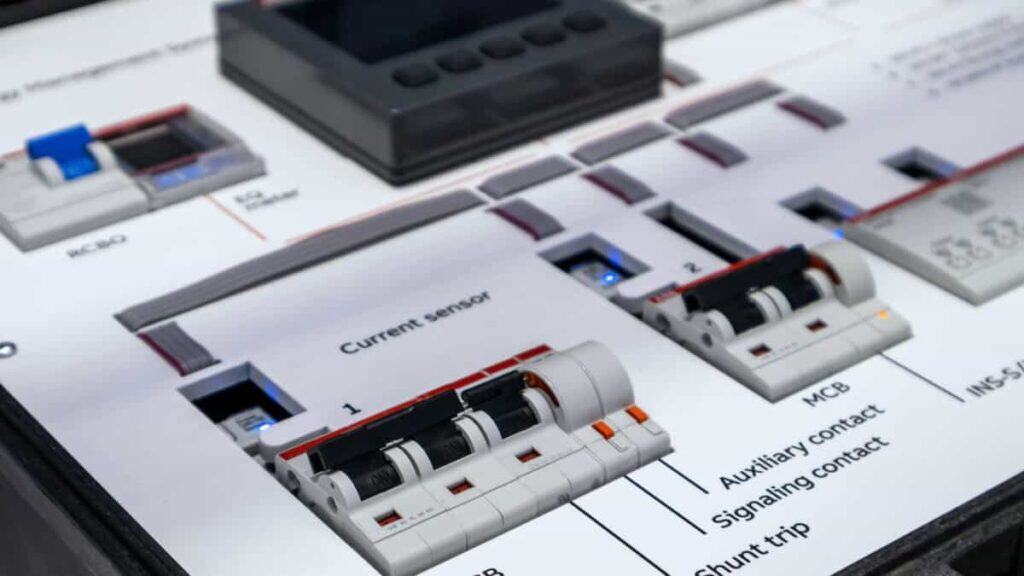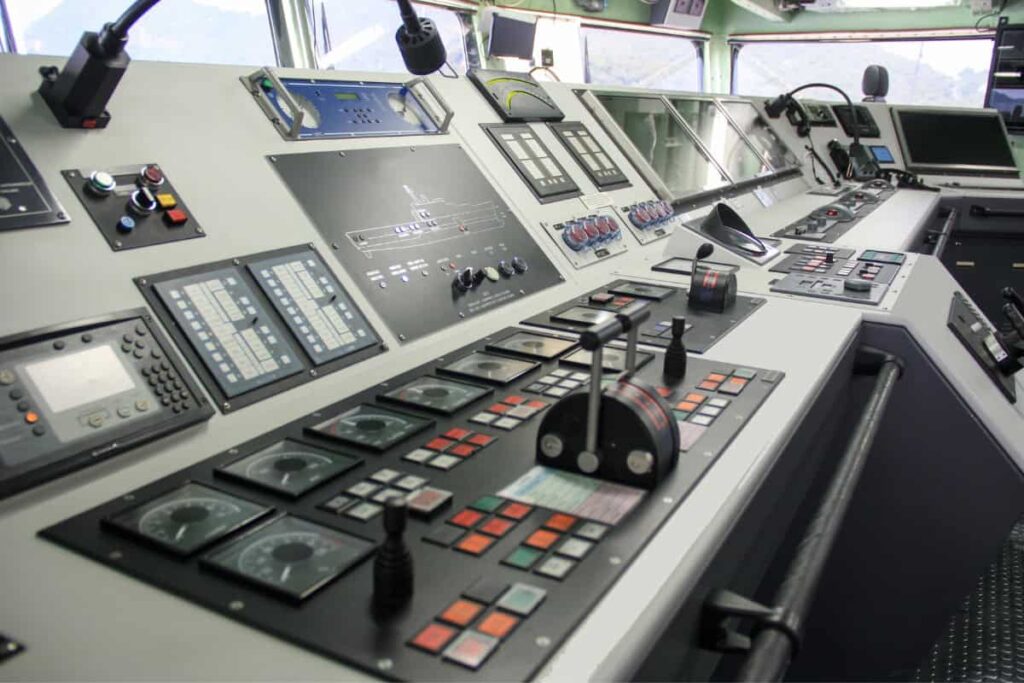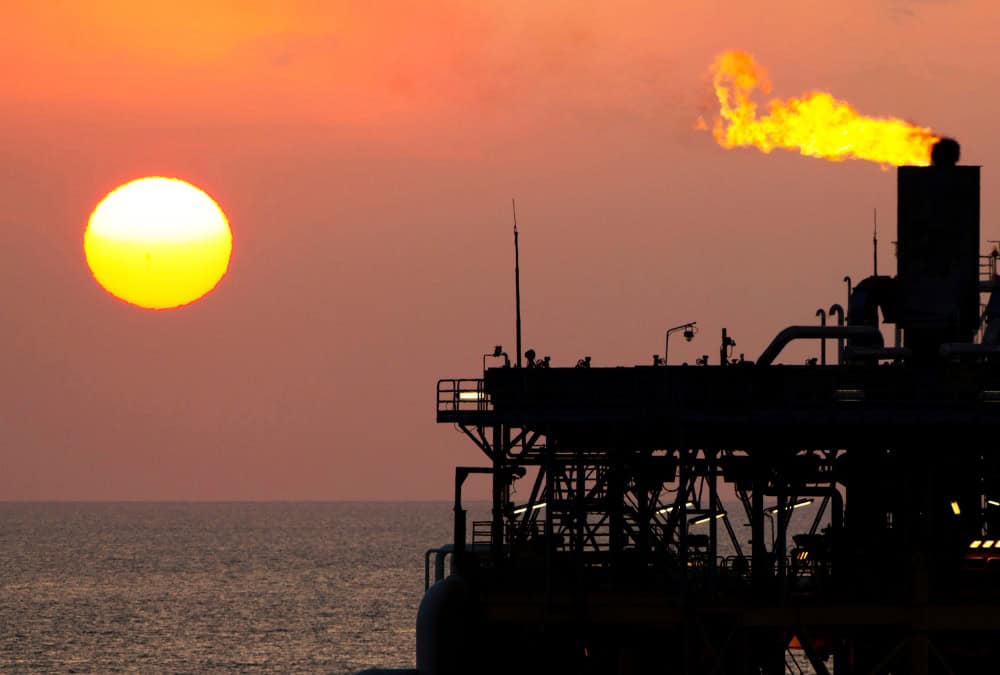Control panels for marine & offshore applications
- Robust marine design
- In accordance with DNV/ABS requirements
- Fully tested trajectory
Marine & offshore control panels compliant with DNV/ABS
A marine & offshore control panel in accordance with DNV/ABS forms the heart of the electrical installation on ships and offshore platforms. These cabinets provide safe and reliable control of systems that must perform under harsh conditions. Think of pumps, generators, HVAC and safety systems that have to function continuously, even in vibration, moisture and salt spray. For engineers and purchasers, assurance that panels meet the correct guidelines is essential. A well-designed offshore switchgear combines durability, compliance with standards and easy maintenance.
Paneelbouw Pioniers voor Machinebouw
Met de precisie van een horlogemaker en de souplesse van een acrobaat, zet Gerbin Control zich in voor het creëren van maatwerk elektrotechnische panelen voor de machinebouw. Als veerkrachtige speler in de paneelbouw, schakelen we snel, zonder in te boeten op kwaliteit of duurzaamheid. Stap in onze wereld van innovatie en ontdek hoe we uw machinebouw-projecten naar een hoger niveau kunnen tillen.
OPEN CALCULATIE
Krijg duidelijkheid in kosten en flexibiliteit in uitvoering
OFFERTE IN 5 DAGEN
Wij begrijpen de urgentie van uw projecten
VERDUURZAMING
Toegewijd aan een duurzamere toekomst
UL/CSA
UL / CSA certificering voor uw panelen in huis.
What are marine & offshore control panels according to DNV/ABS?
Marine and offshore control panels are switchboards designed specifically for applications on ships and offshore installations. They are the central point for controlling drives, pumps, generators and support systems. Because they are used in environments with moisture, vibration, salt spray and large temperature fluctuations, these panels must be extra robust and safe.
A offshore control cabinet that meets the requirements of classification societies such as DNV or ABS provides assurance that the installation will function reliably and comply with international standards. For project managers and engineers, this means that the cabinet is not only technically correctly designed, but also feasible and maintenance-friendly.
Important standards and guidelines
DNV panel building design and construction requires knowledge of both international class standards and basic electrical engineering guidelines.
NEN-EN 61439
This standard describes the requirements for low-voltage switchgear and distribution devices. Among other things, it addresses short-circuit resistance, heat generation and electrical safety. For marine and offshore, this is an essential basis.
UL 508A
Exports to the United States or Canada may require panels to be built in accordance with UL 508A. This ensures that the control cabinets are suitable for the North American Market. Gerbin Control may be able to provide this in accordance with customer specifications.
ATEX 114 (2014/34/EU)
For explosion-proof applications on offshore platforms, ATEX 114 is important. This provides guidelines for installations in zones where gas or dust are explosion hazards. It is important to always formulate this correctly as in accordance with ATEX 114.
DNV and ABS
DNV and ABS are international classification societies that set requirements for the construction and installation of systems in the ship and offshore industry. A control panel must therefore be designed to comply with these guidelines, for example in terms of material selection, vibration resistance and safety.
CONTACT US
Applications in industry
Marine and offshore control panels find application in a variety of systems, including:
- Pump systems For ballast water or cooling water.
- Generator control and power distribution.
- HVAC installations for air conditioning on ships and platforms.
- Safety systems such as emergency lighting and fire pumps.
- Navigation and auxiliary systems which must operate continuously.
These applications require panels that can withstand harsh mechanical and climatic conditions, with high IP ratings (e.g., IP65) and corrosion-resistant materials such as stainless steel or coated enclosures.
Benefits of marine & offshore control panels
A well-designed offshore switchgear cabinet offers several advantages:
- High reliability: essential in critical facilities where downtime is not allowed.
- Safety: complies with standards such as NEN-EN 61439 and the requirements of classification societies.
- Durability: use of materials and coatings that resist corrosion and moisture.
- Ease of maintenance: clear documentation in EPLAN and easily accessible components.
- International applicability: possible in accordance with UL 508A and DNV/ABS, suitable for worldwide projects.
The process from design to commissioning
Building marine and offshore control panels follows a careful process in which quality and safety are key.
Design and engineering
It starts with hardware engineering according to NEN-EN 61439 and software development based on IEC 61131-3. Schematics are worked out in EPLAN P8 or Pro Panel.
Panel building and assembly
The panels are built with carefully selected components from brands such as Siemens, Phoenix Contact or WAGO. Vibration- and corrosion-resistant solutions are used here.
Testing: FAT and SAT
Before delivery, a Factory Acceptance Test (FAT) takes place in which the panels are checked for specifications and safety. After installation, a Site Acceptance Test (SAT) follows to validate the cabinet in the field environment.
Installation and cabling
Assembly and field wiring are performed so that all systems are seamlessly connected. This takes into account cable shielding, EMC and marine installation requirements.
Commissioning
During commissioning, all functions are validated, including interfacing with protocols such as Profinet or Modbus TCP. In this way, reliability is demonstrated in practice and the customer receives a fully tested system.
Years of experience in the field of industrial automation
Efficiency and reliability in industrial automation
With Gerbin Control as your partner, you benefit from several specific advantages. We strive for reduced Total Cost of Ownership (TCO) and offer electrical components that meet the highest standards. In addition, we combine flexibility with competitive pricing, increase the efficiency of your systems and machines, and have an international network and UL/CSA certification.
Gerbin Control as your partner for marine & offshore control panels
At Gerbin Control, we understand that the maritime and offshore industry has specific requirements for control panels. Our expertise in panel construction, hardware and software engineering, installation and commissioning makes us a reliable partner for projects where safety and continuity are paramount.
We design and build switchgear cabinets in accordance with relevant guidelines such as NEN-EN 61439 and NEN-EN 60204-1, and can deliver panels that may meet international standards such as UL 508A or DNV/ABS class office requirements. For applications in explosive environments, we provide solutions in accordance with ATEX 114. Using tools such as EPLAN Pro Panel and protocols such as Profinet, Modbus TCP and OPC UA, we ensure transparency, documentation and reliable communication.
Whether it’s an offshore control cabinet for pump systems, generator control or HVAC installations, Gerbin Control provides custom solutions that are tested and validated through FAT and SAT. This gives you a system that is ready for long-term deployment under harsh conditions.
Want to know more? Contact us for advice or a free consultation. Together we will provide safe and reliable control panels for your marine or offshore project.
Frequently asked questions about marine & offshore control panels
What are the requirements for control panels in offshore environments?
Offshore environments place high demands on control panels. They must be resistant to moisture, salt spray, vibration and temperature fluctuations. In addition, the construction must comply with international standards such as NEN-EN 61439 and often with class agency requirements such as DNV or ABS. A high IP rating (e.g. IP65) is also important to keep water and dust out.
What is the difference between DNV and ABS?
DNV (Det Norske Veritas) and ABS (American Bureau of Shipping) are both classification societies that perform guidelines and inspections for ships and offshore installations. The difference is mainly in the geographical focus and details of their regulations. DNV is often used in European and international projects, while ABS has a stronger presence in North America. Both have similar requirements for safety and reliability of control panels.
Why are IP ratings important for offshore control cabinets?
The IP (Ingress Protection) rating indicates the extent to which a cabinet is protected against ingress of dust and moisture. In offshore applications, high IP ratings are essential because panels often operate in harsh conditions. A cabinet with IP65 or higher provides adequate protection against salt spray and moisture, significantly improving service life and reliability.
Can existing panels be made suitable for DNV or ABS?
Yes, existing control panels can often be modified or upgraded to meet DNV or ABS requirements. This can be done by using corrosion-resistant materials, implementing EMC measures or updating documentation and test procedures. Still, not every panel is suitable for an upgrade; sometimes new construction is the better choice.
What does a FAT and SAT involve in maritime panel construction?
A Factory Acceptance Test (FAT) takes place at the panel builder and verifies that the panel meets design and specifications. This includes testing electrical safety, wiring and functionality. A Site Acceptance Test (SAT) takes place on site, where the panel is integrated into the installation and tested under field conditions. Together, FAT and SAT guarantee a safe and reliable end result.



